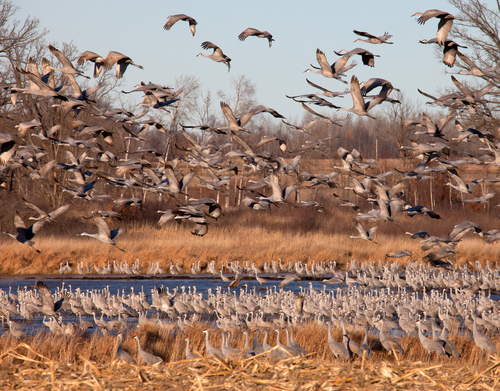Birds will eat seedlings
By Diego Flammini
Assistant Editor, North American Content
Farms.com
An aerial nuisance is causing some Ontario farmers to think about what can be done to protect their crops.
Sandhill cranes are landing in fields, eating grain and corn seedlings, and causing general headaches for farmers.
“In spring, they can go through a field like a combine,” Jack Tindall, who farms near Desbarats, Ontario, told the Sault Star.
Sometimes it’s the sheer numbers of the birds, with farmers saying they’ve lost acres and have even decided to stop planting corn as a result; sometimes it’s the size and personality of the birds that’s the problem.

“It’s their big feet,” Matt Seabrook told the Sault Star. “They trample everything then the geese can get in. Geese don’t land in standing crops. They can’t see. The cranes also don’t scare like they used to. Even when I am combining cranes just fly to the other side of the field. They are not nervous.”
In terms of how to deal with the birds, a sandhill crane hunt has been discussed.
The Ontario Soil and Crop Association passed a resolution requesting a sandhill crane hunt similar to ones found in Saskatchewan, Manitoba and 10 American states; in 2015, they passed a provision allowing permit holders to harvest any sandhill cranes killed while protecting crops.
Some farmers said it may be necessary to control the population and others said they didn’t enjoy shooting something nobody else can hunt.